On this page, you can expect to find a comprehensive vocabulary list related to office terms. There are links to games, flashcards, and other resources to help you master the vocabulary for this subject. Dive in and start expanding your office-related vocabulary today!
Working at the office involves collaborating with colleagues, attending meetings, and completing tasks within a professional setting. It is essential to maintain a productive work environment by staying organized, managing time efficiently, and communicating effectively with team members. Additionally, utilizing technology and software tools can streamline workflow processes and enhance productivity. Overall, being successful at the office requires a combination of teamwork, communication skills, and a proactive attitude towards completing tasks and achieving goals.
Practice & Reinforce Your Learning
At The Office Vocabulary List
Email correspondence

- I have completed the first draft of the report and will be sending it to you shortly for your review.
- Please review the draft email I have prepared and let me know if you have any changes or suggestions.
- Before finalizing the proposal, I would like to make some revisions to the draft to ensure it aligns with our objectives.
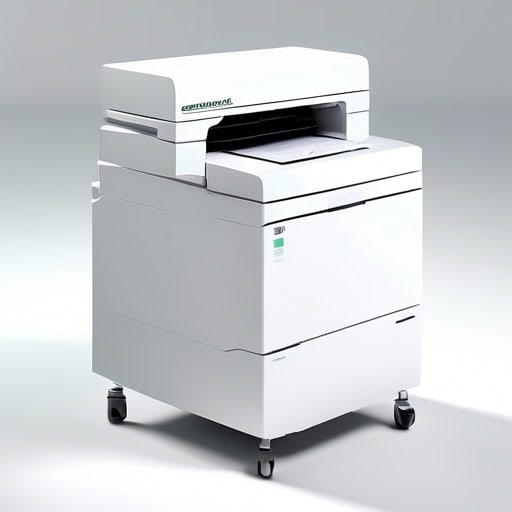
- I have included the attachment with the meeting agenda for your review.
- Please find the attachment containing the detailed instructions for the project.
- The attachment you sent did not open properly on my end, could you please resend it?

- Please respond to my email with "Meeting Agenda" in the subject line.
- The subject line of your email should be clear and concise.
- Remember to include the project name in the subject line when sending your report.

- I always include my signature at the end of every email to ensure recipients have my contact information readily available.
- My signature includes my name, job title, and company logo for a professional touch.
- Adding a signature to your emails can help establish credibility and strengthen your personal brand.

- The recipient of the email was confused by the instructions given.
- Please make sure to include the correct recipient in the CC field.
- The recipient of the scholarship was announced at the award ceremony.
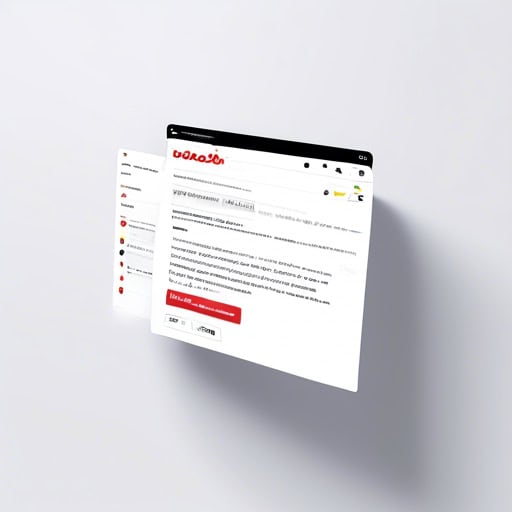
- I have over 100 unread emails in my inbox that I need to go through.
- I always make sure to check my inbox first thing in the morning.
- Please send the document to my inbox so I can review it.

- I will send you the meeting agenda via email.
- Please remember to check your email for important updates.
- Could you please forward that document to me via email?
Working at your desk

- My office chair was specifically designed with ergonomics in mind, providing support for my lower back and promoting good posture.
- I adjusted the height of my computer monitor to be at eye level, following ergonomic recommendations to reduce strain on my neck and eyes.
- By investing in an ergonomic keyboard and mouse, I have noticed a decrease in wrist pain and discomfort while typing for long periods of time.

- Her poor posture while sitting at her desk all day caused her back to ache.
- The physiotherapist recommended exercises to improve his posture and prevent future injuries.
- Maintaining good posture is crucial for overall physical health and well-being.

- I love the sound of typing on a mechanical keyboard.
- The keyboard on my laptop is starting to get sticky.
- She quickly typed out a message on her keyboard before hitting send.

- The wireless mouse allows for easy navigation on the computer screen.
- I need to replace the batteries in my mouse.
- The mouse pad helps the mouse move smoothly across the desk.

- I need to buy a new monitor for my computer because the old one stopped working.
- The IT department will monitor the network to ensure all systems are running smoothly.
- I use a dual monitor setup at work to increase my productivity.

- I need to clean off my desk before I can start working on this project.
- My desk is cluttered with papers and office supplies.
- I bought a new desk chair to go with my modern desk.

- I sat down on the chair at my desk to begin working on my project.
- The chair in the waiting room was surprisingly comfortable, making the time pass quickly.
- The dining room chair creaked as I leaned back to relax after dinner.

- My workspace is filled with natural light, making it the perfect environment for creativity to flourish.
- I like to keep my workspace organized and clutter-free to help me stay focused on my tasks.
- Having a designated workspace at home has greatly improved my productivity.
Working on projects
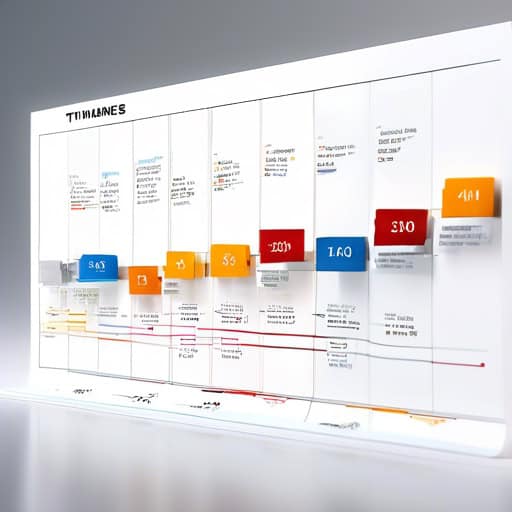
- We need to adhere to the timelines set for each phase of the project to ensure successful completion.
- The team is struggling to meet the deadlines outlined in the project timelines.
- It is important to regularly review and adjust timelines as needed to keep the project on track.

- Our success in completing the project was due to the strong sense of teamwork among all team members.
- Teamwork is essential in achieving our company's goals and objectives.
- The synergy created by teamwork allows us to accomplish tasks more efficiently and effectively.
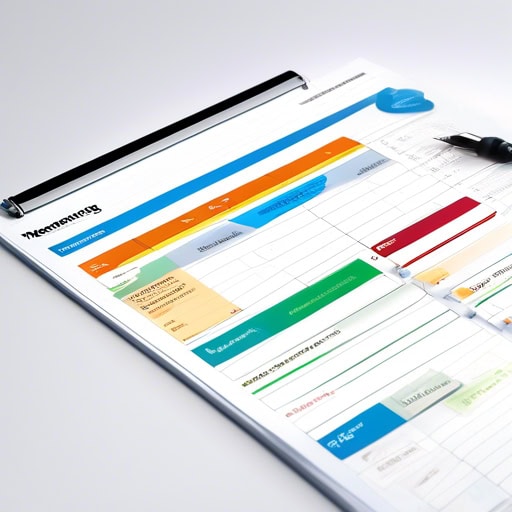
- Our team relies on task management software to keep track of deadlines and progress on various projects.
- Effective task management is essential for meeting project goals and delivering high-quality results.
- I find that using a task management tool helps me stay organized and focused on my daily priorities.

- Reaching important milestones in the construction project signaled that it was on track for completion within the scheduled timeframe.
- The team celebrated reaching the sales milestone of 1 million units sold, showcasing their hard work and dedication.
- Hitting key milestones in the research study demonstrated the team's commitment to advancing scientific knowledge in the field.

- The team met to discuss the timeline for submitting the project deliverables.
- The client was impressed with the quality of the deliverables provided by the team.
- The project manager emphasized the importance of meeting deadlines for the deliverables.

- I need to meet all my deadlines for this project to be successful.
- Missing deadlines can result in consequences such as penalties or loss of opportunity.
- It is important to prioritize tasks to ensure deadlines are met efficiently.

- Our team's successful collaboration on the project resulted in a high-quality deliverable that exceeded client expectations.
- Collaboration between departments has improved communication and efficiency within the company.
- The key to our success was open communication and effective collaboration among team members.
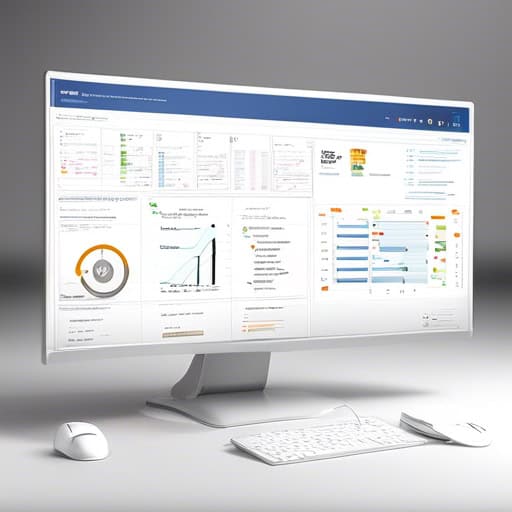
- The success of the new software development project relied heavily on effective project management.
- I am currently taking a course on project management to improve my skills in leading and executing complex tasks.
- The project management team is meeting tomorrow to discuss the timeline and budget for the upcoming construction project.
Attending training sessions

- She was hired for her exceptional communication skills, which allowed her to effectively collaborate with clients and team members.
- The training program focused on developing leadership skills, such as decision-making and conflict resolution.
- His technical skills in programming languages were instrumental in successfully completing the project ahead of schedule.

- I attended a workshop on effective communication strategies for team leaders.
- The workshop provided valuable insights on conflict resolution techniques.
- Participants in the workshop were able to practice active listening skills through role-playing exercises.

- I have a new job and I am currently undergoing training to learn the ins and outs of the company's procedures.
- The training program includes both online modules and in-person workshops to ensure that all employees have a comprehensive understanding of their roles.
- After completing the training, I feel more confident in my abilities and am ready to tackle any challenges that come my way.

- I attended a seminar on new marketing strategies yesterday.
- The seminar was conducted by industry experts and was very informative.
- I plan to implement the knowledge gained from the seminar in my upcoming projects.

- I am excited to participate in the upcoming team-building activities at work.
- It is important for employees to actively participate in professional development workshops.
- I always encourage my team members to participate in discussions and share their ideas during meetings.

- I am excited to continue my learning journey by attending more training sessions at work.
- Learning new skills will help me excel in my job and advance my career.
- I truly value the opportunities for learning and growth that my workplace provides.

- I am excited about the upcoming development training session at work next week.
- The company is investing in the development of its employees by offering various training opportunities.
- Continuous development is essential in this rapidly changing business environment.

- Her consistent attendance at the weekly training sessions impressed her supervisor.
- The company's policy required employees to maintain a high level of attendance at all office events.
- Attendance at the monthly team meetings was mandatory for all staff members.
Human Resources

- The company offered a competitive compensation package to attract top talent.
- Employees were satisfied with the level of compensation they received for their hard work.
- Negotiations for fair compensation are ongoing between the union and management.

- The company implemented a new employee engagement program to foster a positive work environment and boost morale among staff members.
- Regular team-building activities and recognition programs are key components of maintaining high levels of employee engagement within the organization.
- The HR department conducted a survey to measure employee engagement levels and identify areas for improvement in communication and employee development opportunities.

- The employee relations department handled the dispute between the worker and their supervisor.
- Effective employee relations can lead to higher job satisfaction and productivity.
- Regular team-building activities are a great way to improve employee relations within the company.

- During the onboarding process, new employees will be introduced to key company policies and procedures.
- The HR department is responsible for overseeing the onboarding of all new hires.
- Effective onboarding can help new employees feel welcomed and become productive members of the team quicker.

- The company has implemented a new system for performance management to help employees understand their goals and provide regular feedback.
- Performance management is crucial for tracking progress, identifying areas for improvement, and recognizing outstanding contributions.
- Managers play a key role in performance management by providing support, guidance, and resources to help employees succeed.

- Our company is currently undergoing a recruitment drive to fill several open positions in the marketing department.
- The recruitment process involves reviewing resumes, conducting interviews, and checking references to ensure we hire the best candidates.
- The recruitment team is actively seeking diverse candidates to promote inclusivity and representation within our organization.
Quick Facts
- Office workers spend an average of 8 hours a day at work, making the office their second home.
- The average desk has 400 times more bacteria than a toilet seat, making it one of the dirtiest places in the office.
- Studies have shown that open office layouts can decrease productivity by up to 15% due to distractions and lack of privacy.
- The average worker spends 2 hours a day in meetings, with half of that time considered to be unproductive.
- An estimated 20% of all office supplies are stolen by employees each year, costing businesses billions of dollars in losses.
